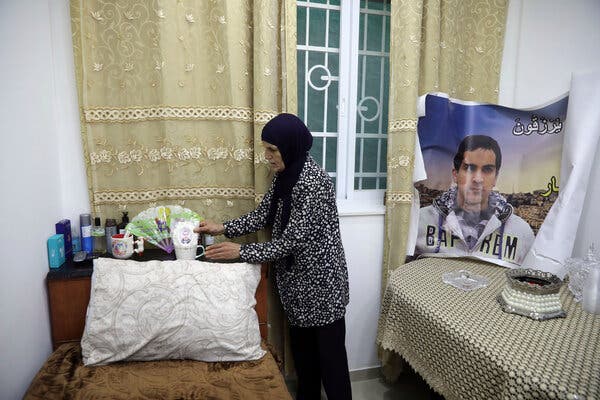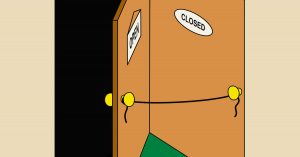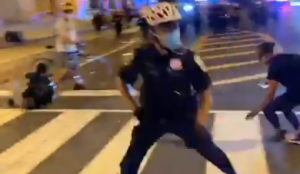JERUSALEM — An Israeli police officer who gunned down a Palestinian man who had autism in the Old City of Jerusalem in May defied an order to hold his fire even though the man posed no danger to anyone, his commander has told investigators, according to people briefed on the case.
“He didn’t attack or do anything,” the commander testified, according to the Israeli newspaper Haaretz. “He was definitely not resisting.”
The May 30 fatal shooting of Iyad al-Hallaq, 30, who was on his way to a school for the disabled, came five days after the killing of George Floyd by a Minneapolis police officer, and quickly became a rallying cry against police brutality at political protests that have roiled Israel for much of the summer.
Mr. al-Hallaq was about 150 yards from the entrance to his school at around 6 a.m. on a Saturday when police officers called to him as he entered the Old City through the Lions Gate. Rather than stop, he ran along the Via Dolorosa. When the initial officers reported a potential “terrorist,” several others gave chase.
One of them, a 21-year-old commander who was just days away from leaving the force, told investigators he fired at Mr. al-Hallaq’s lower body while racing after him, but missed.
Seeking cover, Mr. al-Hallaq turned into the gate of a fenced-in area used by sanitation workers where, according to witnesses, he cowered against a wall as two Border Police officers cornered him: the 21-year-old and his 19-year-old partner, a rookie a few weeks out of basic training. Their names have not been made public.
Both were performing their compulsory military service in the Border Police, a paramilitary arm of the Israeli police that operates on the West Bank, in parts of Jerusalem and in other volatile settings and is frequently called upon in situations with the potential to escalate into violence.
Witnesses have said that a teacher of Mr. al-Hallaq’s saw the episode unfolding and tried to intervene, shouting at the officers that Mr. al-Hallaq was disabled and posed no threat.
But the commander’s testimony, as reported by Haaretz, suggests that, disabled or not, Mr. al-Hallaq should not have been shot.
Haaretz said it had obtained portions of both officers’ testimony to investigators at the Justice Ministry’s police-misconduct unit, which staged a re-enactment at the scene late Wednesday night.
In Haaretz’s account, whose accuracy was confirmed by people briefed on the case, the older officer, having chased Mr. al-Hallaq down, instantly grasped that “there was a discrepancy between the reports I got at the beginning — that this was a terrorist incident, that it was something intended to harm innocent people — and the situation in the trash room.”
“It’s a closed place with no way to escape from it,” the commander said, adding of Mr. al-Hallaq: “He didn’t attack or do anything. He was definitely not resisting. He didn’t endanger me in that situation.” The commander said that he and his partner should have “checked out the suspect from a distance, questioned him.”
But the 19-year-old did not heed his order, the commander testified: “Then my partner shot, and I yelled again, ‘Stop shooting, stop shooting.’ Apparently the suspect made some movement that caused my partner to shoot again.”
The 19-year-old, according to Haaretz, told investigators he based his decision to fire on the initial identification of Mr. al-Hallaq as a “terrorist” and a movement that he saw Mr. al-Hallaq make.
“I didn’t hear ‘Stop,’” the younger officer said. “I acted the way I was taught. As far as I was concerned, this was a terrorist whom the force commander shot at before we entered the room.”
His lawyer, Efrat Nahmani Bar, emphasized her client’s inexperience, and said he believed Mr. al-Hallaq — who was wearing dark surgical gloves, because of the coronavirus — was about to pull out a weapon. “He’s a young soldier who thought he was doing the right thing,” she said.
Mr. al-Hallaq was shot twice in the torso, an autopsy found.
In an interview, Mickey Levy, a lawmaker and former Jerusalem police commander, called the shooting “a severe operational error” that violated basic rules of engagement. “They didn’t see any weapon in his hand, so they didn’t need to shoot,” he said.
The misconduct unit’s investigation is nearing an end, officials say. Surveillance video of the May 30 incident was inconclusive, because two cameras trained on the spot where Mr. al-Hallaq was shot were not hooked up to recorders at the time, according to witnesses and investigators.
Still, the testimony of the police commander appeared to confirm the grim summation of the victim’s father, Khairi al-Hallaq, in a recent interview: “He hid in the corner, and they shot him.”



















